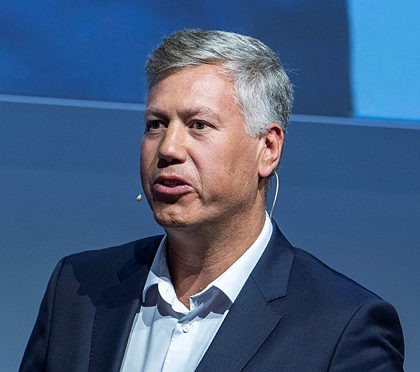- Home » News » World News
Efficient motors and drives ‘could hit 40% of Paris climate goals’

ABB has published a White Paper arguing that high-efficiency motors and VSDs (variable-speed drives) could by themselves achieve more than 40% of the reduction in greenhouse gas emissions needed to meet the 2040 goals established by the Paris climate agreement. It calls on governments and industry around the world to accelerate the adoption of these technologies to help combat climate change.
The paper – called Achieving the Paris Agreement: The Vital Role of High-Efficiency Motors and Drives in Reducing Energy Consumption – reports that about 300 million of the electric motors in use around the world are inefficient or consume much more power than required, resulting in “monumental” energy wastage.
If these systems were replaced by optimised, high-efficiency equipment, the world's electricity consumption could be cut by up to 10%, it calculates. This, in turn, would account for more than 40% of the reductions in emissions needed to hit the 2040 goals set out in the Paris Agreement.
“Industrial energy efficiency, more than any other challenge, has the single greatest capacity for combatting the climate emergency,” argues Morten Wierod, the president of ABB Motion. “It is essentially the world’s invisible climate solution.
“The importance of transitioning industries and infrastructure to these highly energy efficient drives and motors to play their part in a more sustainable society cannot be overstated,” he continues. “With 45% of the world’s electricity used to power electric motors in buildings and industrial applications, investment in upgrading them will yield outsized rewards in terms of efficiency.”
ABB estimates that its own installed high-efficiency motors and drives resulted in 198TWh of electricity savings in 2020 – equivalent to more than half of the annual consumption of the UK. By 2023, it adds, they will save an additional 78TWh per year – almost as much as the annual consumption of Belgium, Finland or the Philippines, and more than the annual consumption of Chile.

Regulatory policies are among the main drivers of industrial investment in energy efficiency around the globe. While the European Union will be implementing its Ecodesign Regulation (EU 2019/1781) this year, which sets out stringent new requirements for an expanding range of energy efficient motors, many countries have yet to take action.
To take advantage of the opportunities offered by energy-efficient drives and motors to reduce greenhouse gas emissions, ABB argues that:
• decision-makers and government regulators need to incentivise their rapid adoption;
• businesses, cities and countries need to be aware of both the cost savings and environmental advantages, and be willing to make the investment; and
• investors need to re-allocate capital to companies better prepared to address the climate risk.
“All stakeholders need to work together to bring about a holistic transformation in how we use energy,” says Wierod. “By acting and innovating together, we can keep critical services up and running while saving energy and combatting climate change.”





